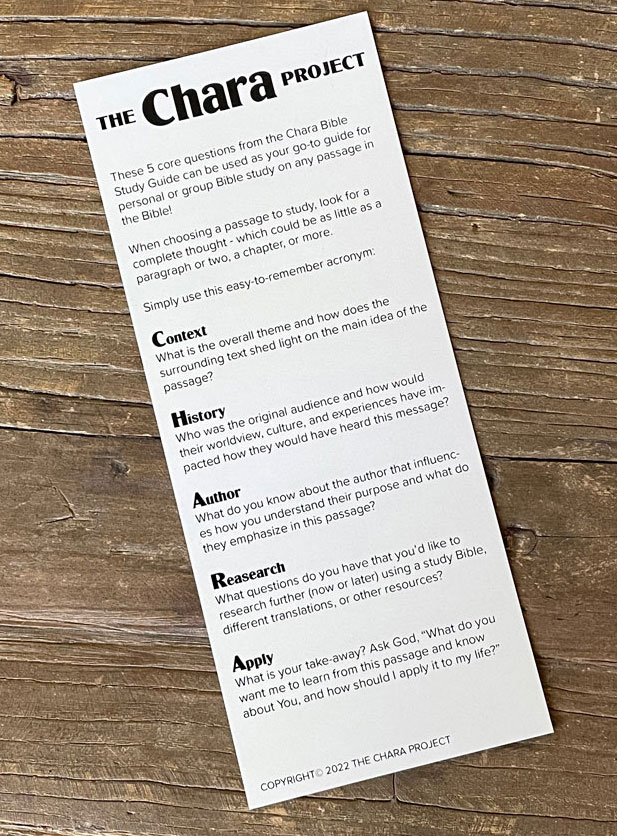What comes to mind when you think of the Bible? Joy and freedom? A list of rules? Whether you’ve opened it recently or never in your life, we all have some notion about the Bible and the God we learn about within its pages. And whether we recognize it or not, our culture impacts our perspective. This week we get to look at the Word of God through the lens of a psalmist who poured his heart out to God over 2000 years ago in a super authentic and unique way. Psalm 119, the longest psalm (and the longest chapter in the whole Bible), is written as an acrostic poem – the 22 stanzas follow the 22 letters in the Hebrew alphabet. Each stanza has eight lines, all of which begin with the corresponding Hebrew letter. This poem was carefully and thoughtfully composed and it’s structure helped with memorization during a time when very few people owned written copies.
DAY 1
Psalm 119 is all about celebrating God’s Word, which is also referred to in this poem as instruction, decree, law, precept, statute, command, judgment, testimonies, and promise. Read Psalm 119:1-2. How does the psalmist describe the person who walks in the law of the Lord? How do different Bible versions translate the word “blessed” in the first two verses (try the Christian Standard Bible (CSB) or New Living Translation (NLT))?
Tip: The YouVersion Bible app allows you to read and compare different Bible versions easily and at no cost.
The Hebrew word usually translated as “blessed” in English, actually means happy. In the 1600’s, when the KJV was translated, blessed and happy meant the same thing! It really helps highlight the fact that the psalmist is literally expressing joy and happiness in walking in the word of the Lord! To him, it’s not a list of rules, but a way of life. A happy life. The Lord’s instructions are His delight, His treasure, they are “sweeter than honey” (vs. 103) – something God wants for Him not from Him. Read Deuteronomy 10:12-13. What did God ask of His people, Israel? Why does God ask them to obey His commands?
DAY 2
If you have a hard time believing that God is for you, the psalmist would encourage you to meet the Lord in His Word and seek Him with your whole heart (Psalm 119:2). Read Deuteronomy 4:29. What does Moses say will happen when you seek the Lord with your whole heart and soul?
Here’s the thing – if you whole-heartedly seek the Lord in the Bible, you will find Him! You don’t have to be perfect before you open a Bible, talk to Him in prayer, or step foot in a church. Moses wasn’t perfect. The psalmist wasn’t either. Call out to God in the pit of your despair, in the depths of your shame! In verses 5-6 we see the psalmist fell short of God’s law and he felt shame. He even prayed that God wouldn’t abandon him! Have you been there? Why do you think the psalmist could find joy in God’s Word even though he had fallen short of it?
DAY 3
The Psalms can do for us today what they did for the people back then. The reflective poetry helped the Israelites remember their story – the history of their people and the faithfulness of their God. Written by David and other psalmists, all 150 poems were collected into the book of Psalms during a time of captivity, after the Babylonians invaded Jerusalem. Exiled from their land, the psalms would’ve been a comfort in their distress, allowing them to personally connect with God in prayer and song no matter where they were. And an encouraging reminder that their God had always been faithful even when they were not. After all, the Israelites had been scattered from their land before, the land God had promised them and instructed them how to flourish and live in. Of course, God knew that over time the hearts of His people would turn to worship idols in the promised land and He knew that in their distress they would turn back to Him once again. Read Deuteronomy 4:27-31. What did God promise would happen when His people returned and obeyed Him? How could they know what He said was true?
The psalmist had a sincere heart to obey the Lord and he devoted time to meditating on God’s Word and thinking about His ways (119:15). We study the Bible to know God better and draw closer to Him, to love Him and delight in Him. We invite you to continue pondering the joy and relationship the psalmist had in God’s Word by digging deeper this week into Psalm 119.


